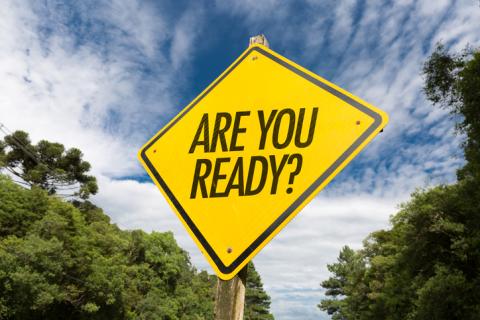Emergency Preparation When a Loved One Has Dementia
September is National Preparedness Month. This year reminded us about the importance of emergency preparation, for individuals, communities and the nation. We just learned that the effects of Hurricane Maria in Puerto Rico took almost 3,000 lives. Other hurricanes and winter storms ravaged coastal areas. Volcanic activity in Hawaii and record-breaking wildfires in the West left many homeless.
News coverage of these events often focuses on the effects of disasters on older adults. But did you know that the negative impact is much greater when an elder is living with Alzheimer’s disease or a related disorder? Researchers from Queensland University of Technology (QUT) in Australia studied the risk factors. For example, said QUT professor Dr. Linda Schnitker, “An American study found there was an increase in deaths of residents with dementia at 30 and 90 days after Hurricane Gustav in 2008, compared to their peers not affected by it.” People with dementia are also more likely to be hospitalized, and according to Dr. Schnitker, “Exposure to a natural disaster may exacerbate dementia symptoms and increase the risk of functional decline.”
Caregivers are also affected. “For carers of people with dementia,” said Dr. Schnitker, “there is an extra layer of anxiety and potential danger. They need to consider how to best help the person they care for and also protect themselves from harm. Planning ahead is critical.” Recognizing that being prepared can lower the stress people with dementia and caregivers experience during emergencies, Dr. Schnitker and her team created a guidebook to help during the preparation process. (See the resources at the end of this article.)
The U.S. government offers emergency preparation information for the whole family at www.ready.gov. And the National Institute on Aging has also released specific suggestions about what dementia caregivers can do to keep their loved one safe before, during and after an emergency:
- Gather supplies for sheltering at home and/or evacuation. As you prepare your family’s disaster, don’t forget the special needs of your loved one, which might include incontinence garments and wipes; your loved one’s favorite comfort objects, such as a pillow or stuffed toy; snacks and drinks that your loved one likes and information you might need, such as your loved one’s doctor and insurance contact information. Include a recent photo of your loved one, in case you become separated. Keep these documents in a waterproof container.
- Make a plan for evacuation. During disasters, people are often advised to ride it out at home. But if your loved one will need to evacuate, that can be a chaotic situation and your loved one may be very anxious and upset. Learn ahead of time which shelter is equipped to handle your loved one’s needs. As you’re planning, talk to the police and emergency services personnel about the community’s plans for individuals with disabilities and about your loved one’s particular needs. Plan ahead for transportation to the shelter. Have a backup plan if it happens that you can’t be there. Be sure your loved one is wearing an ID bracelet.
The better prepared you are, the more likely it is that your loved one will remain safe and well. As you make your plan, you can find more information from:
The Alzheimer’s Association www.alz.org/help-support/caregiving/safety/in-a-disaster
The National Institute on Aging www.nia.nih.gov/health/disaster-preparedness-alzheimers-caregivers
The Queensland Institute of Technology’s Preparing for a Natural Disaster Carer Ready Guide http://dementiakt.com.au/resource/carer-ready-guide
